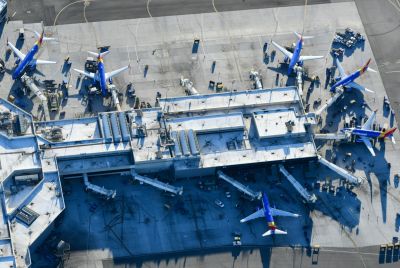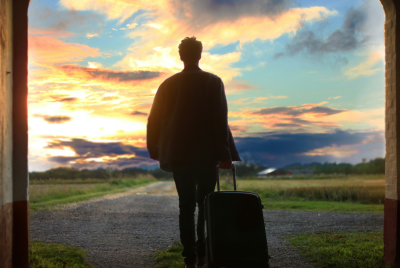Brits Should Avoid Travelling To These Countries In 2025 – According To Foreign Office
If Brits travel to a country deemed unsafe by the FCDO, they may not be able to claim travel insurance.

One of the most useful things Brits can do before taking an overseas trip is checking whether the Foreign, Commonwealth & Development Office (FCDO) has deemed that country as safe to travel to.
The FCDO says they help tens of thousands of British nationals who have had trouble abroad every year. They emphasise that many of these cases could have been avoided if travellers had read up on the FCDO's travel advice.
226 countries have travel pages with the FCDO providing up-to-date information about entry requirements, safety and security issues, health risks, details about local laws and information on the threat from terrorism.
The FCDO stresses that 'The safety of British nationals is always our main concern in determining our travel advice.'
There are currently 73 countries which the FCDO has classified as having 'no-go' zones, whether it's the entire country or parts of countries. These include parts or all of countries in Europe, Africa, Asia, and South America.
Eight Countries You Should Avoid All Together
There are eight countries which the FCDO deems the entire country unsafe to travel to for various reasons.
Afghanistan, Haiti and Yemen are all flagged for 'volatile' or 'unpredictable' security conditions. Syria is also flagged for unpredictable security as well as ongoing conflict.
Belarus and Iran were listed due to Brits facing a significant risk of being arrested.
Due to the risks and threats of its invasion of Afghanistan, the FCDO also advises against travelling to Russia.
South Sudan is the final country the FCDO warns Brits to avoid entirely due to risks surrounding armed violence and criminality.
Countries You Should Fully Avoid Unless Essential
The FCDO advises against travelling to these three countries unless absolutely essential.
What is considered essential is ultimately up to the traveller, though the FCDO notes that urgent family or business commitments may fall under this category. However, they say, 'Only you can make an informed decision based on your own individual circumstances and the risks.'
New Caledonia is one of the countries the FCDO says travellers should otherwise avoid if not for essential travel, given ongoing tensions.
North Korea is another country to avoid unless absolutely necessary due to the security situation being able to change quickly without warning.
Finally, the FCDO warns against travelling to Mayotte unless essential due to Cyclone Chido which devastated the country in December 2024.
Countries Where Parts Are Deemed Safe/Unsafe
There are 62 countries which the FCDO has categorised parts of as being completely unsafe or unsafe unless essential to travel to.
Places where Brits should avoid travelling to under any circumstances include Turkey within 10km of the Turkey-Syria border, everywhere in Mali except Bamako, and Armenia within 5km of the full eastern border between Armenia and Azerbaijan
Places which should be avoided unless deemed essential include Bawku Municipality in Ghana, the State of Amazonas in Brazil, and Colombia's borders, the Pacific coast and parts of central Colombia.
Travellers can find the full list of countries where parts are currently deemed unsafe to travel to in a recent article by The Independent, or find travel advice specific to each country on the FCDO's website.
Reasons not to travel to certain parts of these countries span from civil unrest and terrorism to health and security risks.
Ultimately, Your Safety Is Up To You
Although the FCDO provides travel recommendations, every person and trip is different and it's ultimately up to them to decide their travel plans.
'You are the only person that can make a decision that is right for you,' the FCDO says.
'It's your responsibility to plan for a safe trip and to make decisions about whether or not it's safe enough for you to travel. Each individual trip is different and each person has their own very different view of what an acceptable level of risk means for them.'
However, reading up on the FCDO's advice and following their recommendations can help travellers avoid experiencing unnecessary trouble overseas.
'No travel is completely safe, but our travel advice always puts your safety first,' the FCDO says.
© Copyright IBTimes 2025. All rights reserved.






















